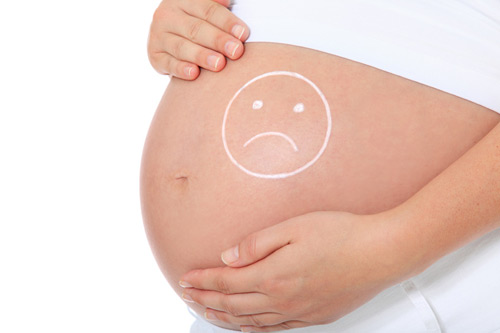Danger Signs

First Trimester of Pregnancy
Open lines of communication between you and your doctor or nurse-midwife is one of the best ways to guarantee a safe, comfortable pregnancy. Your doctor or nurse-midwife wants to remain informed, and your observations are important regarding the changes occurring in your body.
At this phase of your baby's development, report any of the following immediately:
- Bleeding from the vagina
- Sudden gush of water from the vagina
- Persistent, severe headaches
- Blurred vision or spots before your eyes
- Severe nausea and vomiting occurring several times over the period of an hour
- Chills and fever over 100 degrees F if you do not have cold symptoms
- Swelling of the ankles, feet and hands, particularly if it happens suddenly
- Abdominal pains not relieved by a bowel movement
- Burning and frequency of urination
- Increased, unusual thirst with a decrease in the amount of urine you are passing
- No urination for 12-hours despite normal intake of fluids
- A sudden increase or decrease in movement from the fetus
Preterm Labor
Going into labor before your baby is due is an unusual occurrence, but it is still wise to be familiar with the signs.
Second Trimester
If you experience any of these, call your doctor or nurse-midwife immediately:
- Menstrual-like cramps that last more than 1 hour
- Increase or change in vaginal discharge
- Ruptured membranes (a slow leak, steady trickle, or sudden gush)
- Six or more contractions in a regular pattern lasting for more than 1 hour
- Pelvic pressure (or a dull backache below the waist) lasting more than 1 hour
- A feeling of your baby pushing down, throbbing in the vagina or cramps in the thighs
- Diarrhea or indigestion that lasts more than 1 hour
- Heavy bleeding
Third Trimester
Call your health care provider if you experience any of the following:
- Sudden vaginal bleeding
- Sudden weight gain
- Sharp or severe pain in your abdomen
- Headache unrelieved by acetaminophen (Tylenol®)
- Blurred vision
- Spots before your eyes
- A sudden swelling of your hands and face
- A noticeable change in your baby's activity
- Vaginal discharge that is watery, bloody or has a bad odor
- Labor before your baby is 37 weeks old, it is called preterm labor
Preterm Labor Signs
- Change or increase in vaginal discharge
- Ruptured membranes (a slow leak, steady trickle, or sudden gush of amniotic fluid from the vagina)
- Six or more uterine contractions in 1 hour in a regular pattern
- Menstrual-like cramps for more than 1 hour
- Dull backache below the waist for more than 1 hour
- Increased pelvic pressure for more than 1 hour
- Throbbing in the vagina, cramps in the thighs, or feeling your baby pushing down
- Intestinal cramping, with or without diarrhea or indigestion, for more than 1 hour

The Dangers of High Blood Pressure
When the pressure of the blood inside your arteries is at a level higher than normal during pregnancy, it can lead to serious conditions, such as pregnancy-induced hypertension or preeclampsia. These conditions may be mild or severe.
Signs of Preeclampsia
- A sudden weight gain of more than 1 pound a day
- Swelling (edema) of your face and hands
- Small amounts of dark urine
- Severe or constant headache
- Blurred vision or spots in front of your eyes
- Pain in the upper right part of your abdomen, a dull achy indigestion feeling under your ribs or stomach area and/or flu-like symptoms
- On-edge feeling
If not treated, preeclampsia can be life threatening to you or your baby. Call your health care provider if you have any of the above signs.
When high blood pressure is found early, these serious problems may never develop. At each of your clinic visits during your pregnancy, your blood pressure will be taken and compared to what is normal for you.
Treatment depends on whether your symptoms are mild or severe. For mild preeclampsia, you would have more clinic visits and more tests to check the health of your baby. These tests would include fetal movement counts and ultrasound. You may also be placed on bedrest.
For severe preeclampsia, you may need to have home nursing services or stay in the hospital. The decision to deliver your baby will depend on the risks to you and the health of your baby. Labor may start on its own, be induced, or your doctor may schedule a Cesarean. Your baby may need to stay in a special care nursery after delivery.
Extremely High Blood Pressure
When blood pressure is extremely high, it can damage the mother's kidneys, brain, eyes and liver. It can also decrease the flow of blood to the placenta, leaving the baby malnourished and underweight. In severe cases, high blood pressure during pregnancy can even be fatal to the mother and the baby.
 PREGNANCY
PREGNANCY  GIVING BIRTH
GIVING BIRTH  BABY CARE
BABY CARE  HEALTH & SAFETY
HEALTH & SAFETY  FUN STUFF
FUN STUFF  FAMILY
FAMILY 